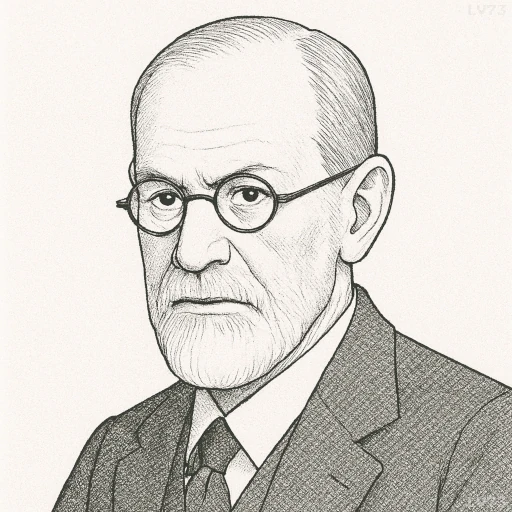“Anatomy is destiny.”

- May 6, 1856 – September 23, 1939
- Austrian
- Neurologist, Founder of Psychoanalysis
table of contents
Quote
“Anatomy is destiny.”
Explanation
In this terse and provocative statement, Freud suggests that biological sex—one’s anatomy—has a profound influence on psychological development, identity, and life trajectory. Particularly in the context of his time, Freud used this phrase to convey that gendered experiences are rooted in bodily difference, and that these differences shape the formation of the psyche, especially through early childhood experiences and sexual development.
This idea is especially prominent in Freud’s theories of psychosexual development, where he proposed that male and female anatomy influences the emergence of identity, desire, and the superego. For example, his controversial theory of penis envy—where girls supposedly experience a sense of lack upon recognizing anatomical difference—was meant to illustrate how bodily awareness structures psychic life. “Anatomy is destiny” thus reflects Freud’s belief that gender identity and psychological orientation are heavily shaped by the body’s form and function.
In contemporary discourse, Freud’s assertion has been both challenged and reinterpreted. Feminist thinkers like Simone de Beauvoir famously countered him by arguing that biology is not fate, and that social, cultural, and historical conditions play a crucial role in shaping identity. Today, gender theory and neuroscience recognize that while anatomy influences aspects of development, destiny is not biologically fixed. Freud’s quote remains influential as a starting point for debates about nature versus nurture, the construction of identity, and the role of the body in shaping our lives and choices.
Would you like to share your impressions or related stories about this quote in the comments section?

